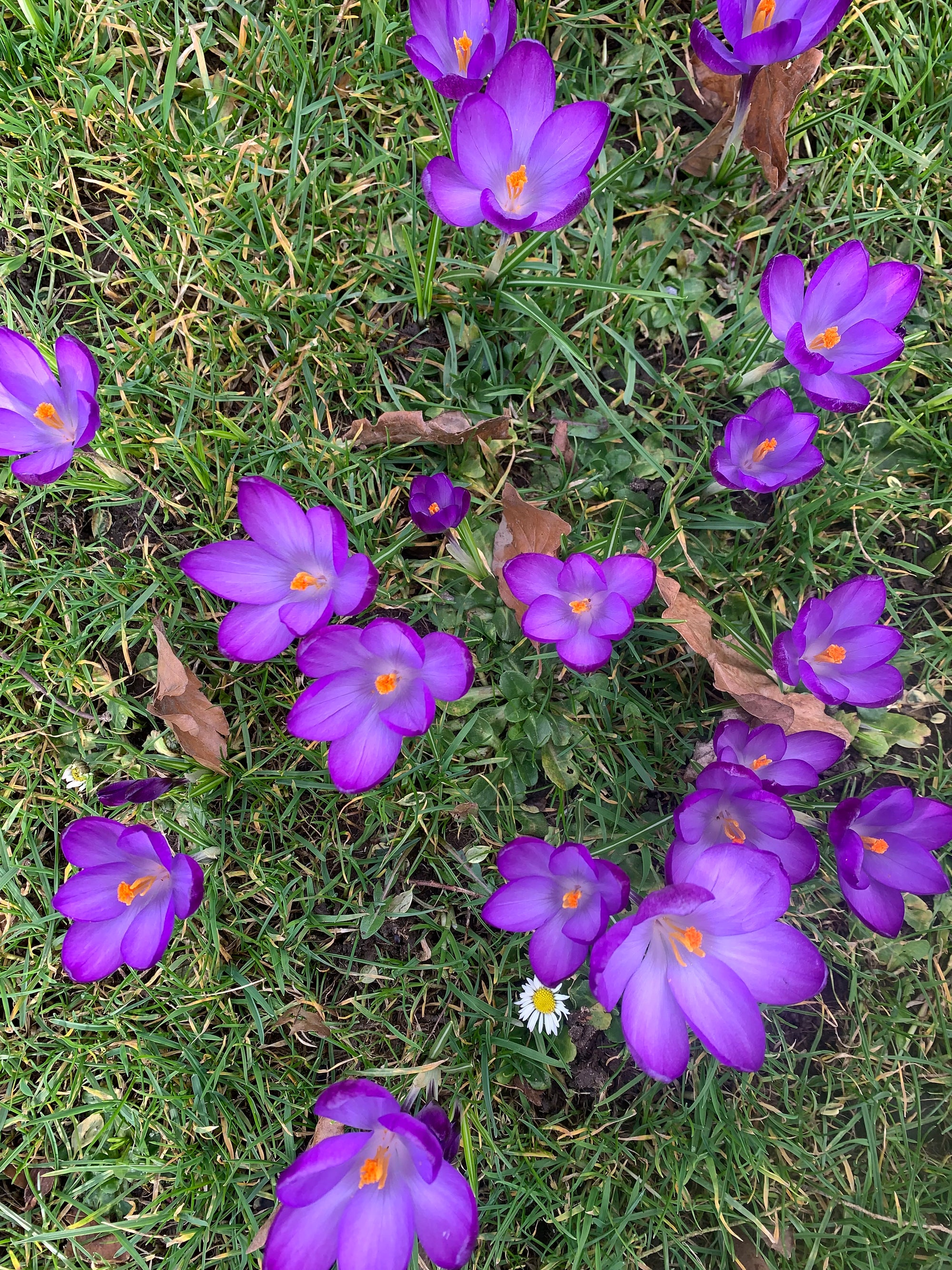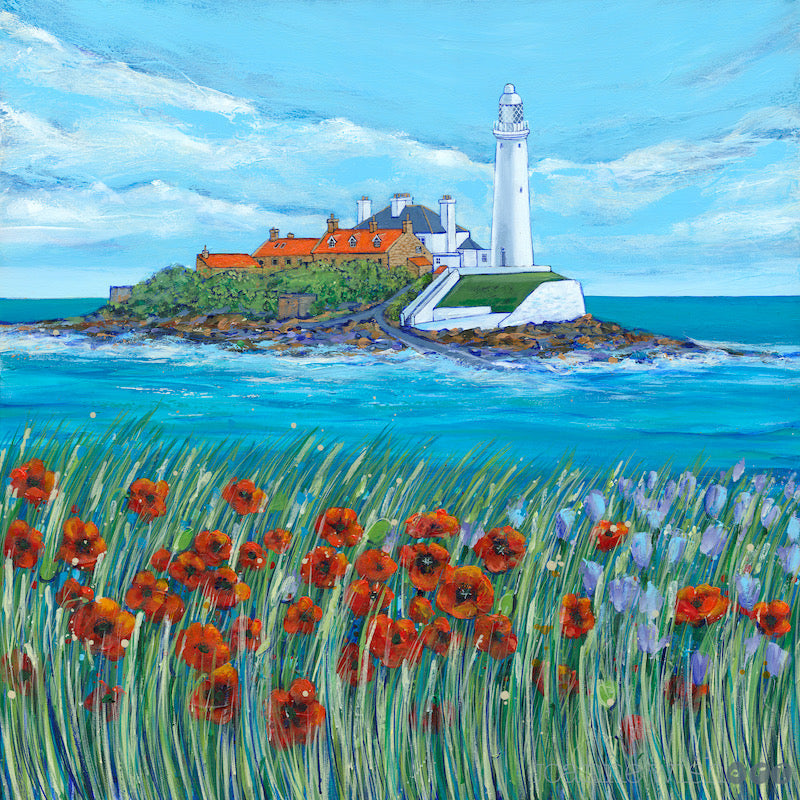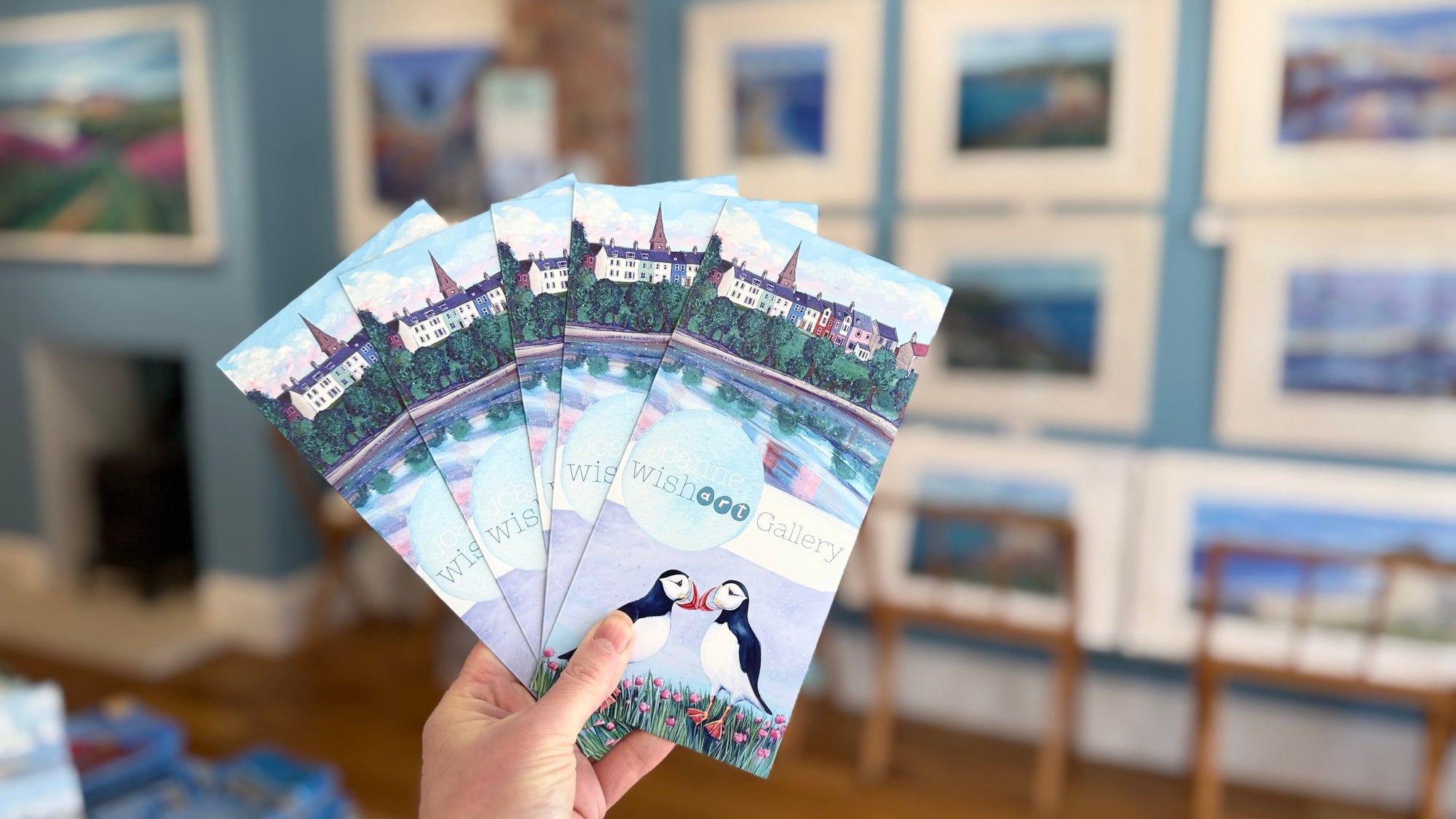Northumberland's Favourite Flowers & Where You Can Find Them
Spring has sprung in Northumberland and the surrounding areas. You may have already spotted the flora and fauna that come along with this season. From bunnies hopping along the Waggonways to proud parents paddling their ducklings across the park ponds, there’s much to see even just a short walk or drive from our homes.

One of my favourite things about this time of year is the bursts of colours brought by the region’s beautiful wildflowers. Even a simple daffodil or snowdrop signifies that longer days and brighter nights are just around the corner. So, I thought now would be the perfect time to write a blog post about my favourite flowers native to the region and where you can go and see them for yourself.
Let’s get started…
Crocuses at Wallington Northumberland

The purple flower has become synonymous with Wallington’s lovingly maintained gardens over the years. The National Trust property is the proud owner of a literal crocus lawn. Thousands of these perfect purple buds start to appear in late January, and you can visit them throughout the springtime.

The Walled Garden is carefully looked after by a team of professional gardeners and volunteers. The crocuses aren’t the only flower you will find here at this time of year; the area is also home to an abundance of floral life - which the birds, bees and butterflies absolutely adore.

It’s not just the bright purple hues that make the crocus special. Part of the iris family, this perennial bloom is one of the very first to appear each spring. The crocus is a very hardy flower and can even be seen popping up when there is still snow on the ground.

I highly recommend a visit to Wallington’s Walled Garden to see the crocus lawn before it’s too late - a lovely stroll around the grounds always gets me in the mood for spring after a long winter!
Daffodils at Howick Hall Garden and Arboretum, Alnwick
Of course, you don’t have to venture anywhere special to see daffodils in bloom at this time of year. Even most commercial office parks and local woodland trails have the yellow and white flowers in abundance. However, I do love a visit to Howick Gardens, which is only a ten-minute drive from Alnwick town centre.

The hall is the ancestral home of Earl Grey and dates back as early as the 14th century. In recent years, Howick has become a favourite among budding horticulturists as its gardens are filled with a wide variety of seasonal flowers, from rhododendrons to daffodils and more.

The surrounding area is home to 65-acres of woodland, wherein you’ll not just find ancient trees but also an abundance of birds and wildlife, so keep your eyes peeled for squirrels, roe deer, herons and butterflies.
Rhododendrons at Cragside, Rothbury
Like Wallington, Cragside is a historic building owned and managed by the National Trust. Sitting on over 1,000 acres, Cragside is the sort of place you can visit time and time again and still make new discoveries.
The house itself was developed in the 1800s by Lord Armstrong and his wife. Home to the world’s first hydroelectric power station, Cragside has always been a site of creativity and ingenuity, but did you know that the grounds are filled with fantastic horticulture just waiting to be found.

Perhaps the most well-known of Cragside’s flora are the rhododendrons. Blooming in late May-early June, the pinkish-purple azaleas lace the grounds of the rock garden, making for a fragrant early summer’s day stroll.

If you do plan to visit Cragside over the next few months, be sure to check the National Trust website for updates as the area is still recovering from Storm Arwen, so not every part of the grounds is open to the public.
Bluebells and Cowslips at Embleton and Newton Links
When it comes to finding wildflowers in the North East, the beach might not be the first place that comes to mind. However, the sand dunes overlooking Embleton and Newton beaches are home to various dainty flora, including bluebells, cowslips and even wild burnet roses.
From around May, you will see the smaller petals start to bloom. Followed by the roses and cranesbill - Northumberland’s county plant - in the late summer. This area brings together both nature-lovers and budding historians, as a stroll along the beach will reveal not only these wonderful wildflowers, but also Dunstanburgh Castle upon the horizon.
Original painting ‘The Beach Towards Dunstanburgh’ available in my online shop and Cullercoats gallery.
Pyramidal orchid at Souter Lighthouse, South Shields

Another coastal favourite that you may not consider a wildflower haven is Souter lighthouse. Nestled on Marsden Quarry, just outside of South Shields, this unmistakable red and white tower overlooks the rocky shoreline. Mineral-rich soil in the surrounding green areas has allowed for the growth of interesting wildflowers, including the pyramidal orchid. As the name suggests, this pink-purple flower is made up of several tiny buds that come to a point at the top.

And that’s not all. You may also spot bee orchids - unsurprisingly named such due to their appeal to the bees. In fact, back in 2014, the assistant ranger spotted a ‘corncockle’ that was previously thought to be extinct! So, Souter is more than just your standard seaside walk.
Limited edition print ‘Sunny Souter Lighthouse Art Print’ available in my online shop and Cullercoats gallery.
So, this was definitely not an exhaustive list, but hopefully, it has given you some inspiration for places to find wildflowers throughout spring and summer in the North East. Is there anywhere you think I’ve missed? Let me know your favourite floral spots on Instagram.





